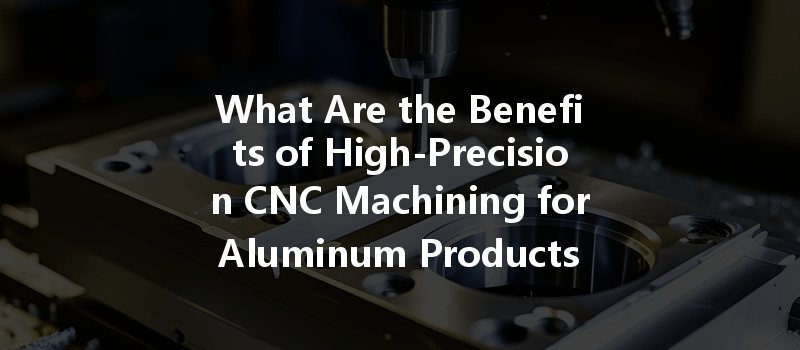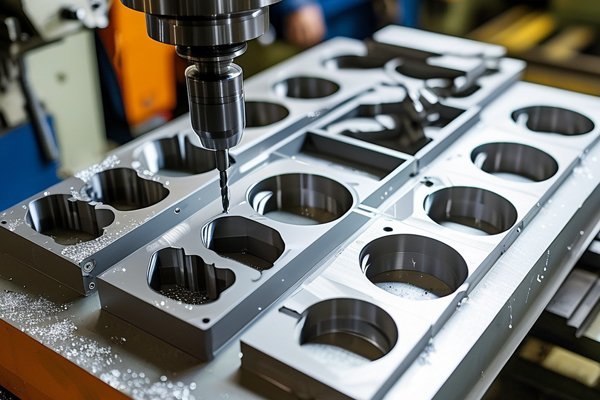Did you know that the global CNC machining market was valued at approximately $63.3 billion in 2020 and is expected to exceed $100 billion by 2026? This remarkable growth can largely be attributed to the increasing demand for high-precision components in various industries, including aerospace, automotive, and medical. Among the materials being machined, aluminum stands out for its combination of lightweight properties, corrosion resistance, and excellent machinability, making it a favored choice for manufacturers. But what exactly are the benefits of high-precision CNC machining for aluminum products, and how can it revolutionize your manufacturing processes? In this comprehensive guide, we will delve deep into CNC machining, explore how it can optimize your production line, and provide solutions to common manufacturing challenges.
Understanding CNC Machining
CNC, or Computer Numerical Control, machining is a manufacturing process in which pre-programmed computer software controls the movement of factory tools and machinery. With CNC machining, skilled technicians can oversee the manufacturing of parts with incredible accuracy and repeatability. This technological advancement has transformed traditional manufacturing, allowing businesses to produce complex shapes and intricate designs efficiently.
The Importance of High-Precision Machining
High-precision machining is critical in today’s manufacturing landscape where even the slightest deviations can lead to significant operational inefficiencies. Tighter tolerances improve product performance and reliability, enhancing the overall value of the end product. The precision achieved through CNC machining combines speed and accuracy—ensuring that businesses can deliver consistent quality at a lower cost.
Benefits of High-Precision CNC Machining for Aluminum Products
Aluminum’s unique properties combined with the capabilities of high-precision CNC machining present numerous advantages. Here are the key benefits:
One of the primary reasons aluminum is favored in manufacturing is its lightweight nature. High-precision machining ensures that complex parts can be created without adding unnecessary weight. This is particularly beneficial in sectors like aerospace and automotive where weight reduction is paramount for fuel efficiency.
While lightweight, aluminum maintains an impressive strength-to-weight ratio, particularly when machined precisely. This attribute allows manufacturers to produce robust parts that meet industry standards without sacrificing performance.
High-precision CNC machining is essential for achieving excellent surface finishes on aluminum. The advanced technology ensures minimal tool marks and imperfections, making parts aesthetically appealing and functional. Such qualities are crucial in industries like consumer electronics, where aesthetics play a significant role in marketability.
One of the significant advantages of CNC machining is its flexibility. Manufacturers can create custom parts tailored to specific applications, from intricate designs for medical devices to complex components for automotive systems. High-precision CNC machining allows for quick adaptations in design without lengthy lead times.
Though the initial investment in CNC machinery may be high, the long-term benefits far outweigh the costs. High-precision machining reduces material waste, minimizes labor costs, and allows for faster production times. Businesses can thus achieve greater profitability.
Typical Applications of High-Precision CNC Machining for Aluminum Parts
High-precision CNC machining’s applications extend across various industries. Here are a few notable uses:
The aerospace industry often requires parts that are both lightweight and durable—attributes of high-precision machined aluminum. Components such as brackets, housings, and structural components are manufactured to stringent tolerances.
In the automotive sector, aluminum is increasingly utilized for engine components, transmission housings, and wheels. High-precision CNC machining ensures that all parts function seamlessly, impacting overall vehicle performance.
The medical field demands precision parts that must meet strict regulatory standards. High-precision machined aluminum plays a vital role in creating surgical instruments, implantable devices, and housing for medical electronics.
The demand for lightweight and high-performance components in electronics has soared. High-precision CNC machining of aluminum enables manufacturers to produce complex enclosures and intricate parts that enhance device functionality.
Aluminum components are prevalent in various industrial machines. CNC machining provides the precise tolerances necessary for mechanical assemblies, valves, and other critical parts.
Overcoming Common Manufacturing Challenges with CNC Machining

While CNC machining boasts many advantages, manufacturers may still face challenges. Here, we explore some of these issues and provide potential solutions.
Investing in high-quality tooling can be expensive. However, manufacturers should consider the long-term savings that come from reduced wear and tear, longer tool life, and less need for frequent replacements. Choosing reputable suppliers for tools that meet specific machining applications can help mitigate costs.
High-precision machining allows for complex geometries, but designers must ensure parts are manufacturable. Engaging with engineering teams during the design phase can produce designs that consider machining capabilities, eliminating potential pitfalls.
Different grades of aluminum exhibit various properties. Selecting the right alloy is crucial for obtaining the desired characteristics in the end product. Consulting with material specialists can aid in making informed choices.
Transitioning to CNC machining from traditional methods may require training and adjustment. Investing in workforce development through training programs can significantly enhance efficiency and leverage CNC technology to its full potential.
CNC machines require regular maintenance to operate accurately. Implementing a maintenance schedule can prevent downtime and ensure longevity for machinery, boosting productivity and minimizing costs.
Implementing High-Precision CNC Machining in Your Operations
As businesses consider the transition or enhancement of their manufacturing capabilities, understanding the steps to implement high-precision CNC machining is essential. Here’s a basic framework:
Begin by evaluating your production needs. Identify the specific components you aim to manufacture, the materials you plan to use, and the tolerances required. This initial assessment will guide your strategy.
Research reputable CNC machining service providers that specialize in aluminum products. Look for companies with proven expertise in high-precision machining and customer testimonials reflecting their capabilities.
If in-house CNC machining is a goal, consider the types of machines suitable for your applications. Investing in high-performance CNC machinery equipped with advanced software will facilitate sophisticated machining processes.
Conduct training sessions for employees to ensure they can operate CNC machines effectively and adhere to safety guidelines. Ongoing training will help keep staff updated on the latest technology and best practices.
Establish a robust quality control process that includes regular inspections to ensure parts meet dimensional and surface finish standards. Quality assurance will enhance product reliability and customer satisfaction.
Foster collaboration among design, engineering, and production teams. Effective communication can streamline the workflow and prevent misalignments in specifications or expectations.
In conclusion, high-precision CNC machining for aluminum products offers unparalleled benefits that can significantly impact various sectors of manufacturing. From weight reduction and enhanced design possibilities to cost-effectiveness and superior surface quality, the advantages are clear. As we discussed, transitioning to high-precision CNC machining may present challenges, but with proper planning and execution, it can propel your business to new heights.
Keeping in mind the competitive landscape of manufacturing, the ability to produce high-quality, customized, and cost-effective aluminum products through advanced machining technologies ensures relevance and resilience in the market. Embracing high-precision CNC machining is not just a choice; it is a strategic necessity in today’s manufacturing environment. As you consider these insights and techniques, remember that adopting high-precision CNC machining could very well be the key to unlocking your company’s full potential.
As industries continue to evolve, staying ahead of technological advancements and refining manufacturing processes will become integral to success. By understanding and leveraging the capabilities of high-precision CNC machining for aluminum products, you position yourself at the forefront of innovation, quality, and efficiency—a position worth striving for in an ever-changing landscape.






